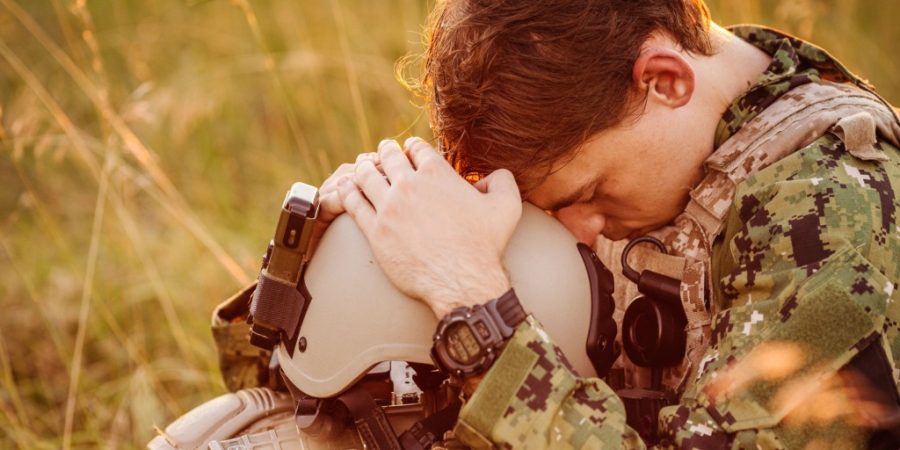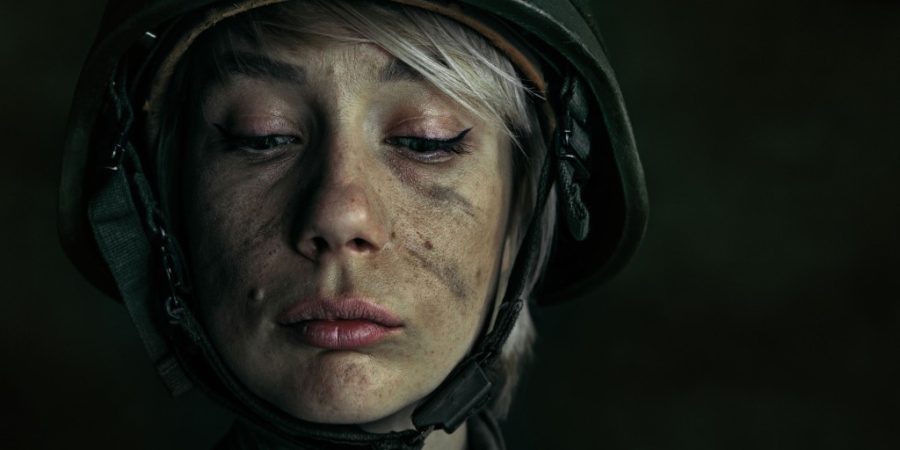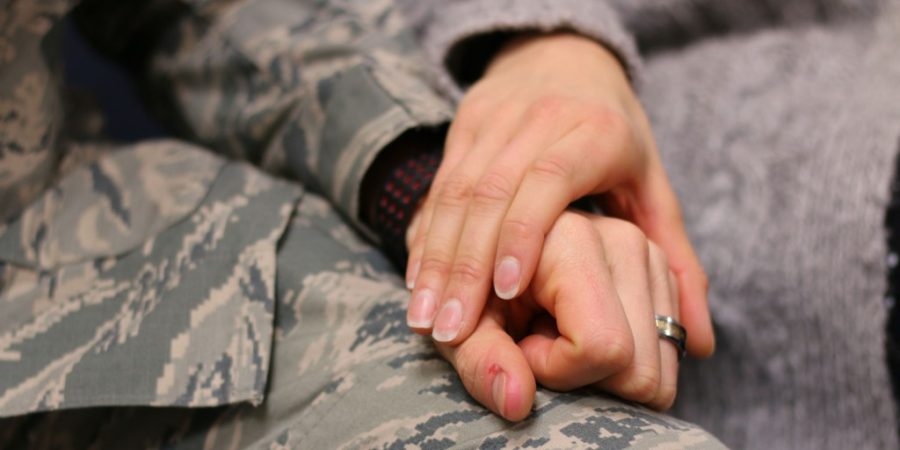
If you are a veteran, you’re most likely familiar with post-traumatic stress disorder (PTSD). But have you heard of complex trauma or complex post-traumatic stress disorder (C-PTSD)? PTSD and complex trauma have overlapping symptoms and often stem from similar experiences. However, they affect the brain and body in different ways.
If you have experienced trauma during your time in the service but your symptoms don’t align exactly with PTSD, there is a chance you’re battling complex trauma. Below you can learn more about what this means, how it affects veterans, and where you can get help.
Table of Contents
What Is Complex Trauma?


The main difference between trauma and complex trauma is the number of times a traumatic event is experienced. Typically, trauma refers to a singular event. However, complex trauma refers to a series of events that take place over an extended period of time. This could be anywhere from several months to years.
In general, trauma develops as the result of a traumatic experience. This happens when the body and brain become so overwhelmed by a situation that they’re unable to come back to a relaxed state after going through the natural response of fight, flight, or freeze. Moreover, the limbic system in the brain is activated by the “stress hormone” cortisol, which puts functions such as sleep and digestion on the back burner until the situation has ended.
But how does this lead to the development of trauma? For most people, their parasympathetic nervous system, which is in charge of the fight, flight, or freeze response, returns to normal. However, veterans with complex trauma are unable to reach a proper relaxation period following a stressful event. The limbic system continues to stay activated, meaning they remain in survival mode as if they are still in danger even when they aren’t. As a result, the baseline of stress and the ability to cope is altered.
Recognizing the Signs
The stressors that cause complex trauma are not only prolonged or cumulative, but they also involve direct harm or exploitation when an individual is in a position of vulnerability. Examples of this type of trauma in the service includes military sexual trauma (MST) and combat exposure.
C-PTSD not only affects your mental health, but it also affects your physical health, your actions, and your relationships. This is why getting help is essential for long-term recovery. As a veteran, getting help from a veteran-run treatment center like Heroes’ Mile can help you recognize and learn to cope with the symptoms because you’re surrounded by people who have gone through similar experiences.
Some of the signs you might be battling complex trauma include:
- Trouble regulating emotions
- Dissociative episodes
- Depersonalization or derealization
- Lapses in memory
- Flashbacks
- A chronic sense of guilt or responsibility
- Difficulty trusting others
- Sleep disturbances or nightmares
- Low self-esteem or negative self-perception
- Somatic problems
How Do Veterans Develop Complex Trauma?
Complex trauma affects veterans who have been in situations that caused prolonged feelings of fear, horror, or helplessness with the inability or perceived inability to escape. Additionally, a significant number of veterans endured adverse childhood experiences prior to their time in the service and have that trauma exacerbated by traumatizing situations in the service. Veterans with C-PTSD symptoms are at a higher risk of abusing alcohol and drugs to alleviate symptoms that stem from childhood and service-related experiences.
Some situations that veterans may have endured that resulted in complex trauma include:
- Deployment in a war zone
- Witnessing an attack
- Sustaining combat-related injuries
- Torture or imprisonment in a POW cell
- Surviving a life or death situation
- Surviving military sexual trauma (MST)
How Is Complex Trauma Related to Addiction?
Veterans struggling to cope with the symptoms of complex trauma may turn to drugs or alcohol to self-medicate. Although the body protects itself from the experiences through memory loss and dissociation, these symptoms can have a negative impact on your mental health and don’t replace the need for coping mechanisms.
Coping with C-PTSD is difficult because it affects both the brain and the body long term. Turning to drugs and alcohol can quickly numb the pain and block out painful memories. However, they worsen other symptoms in addition to interfering with relationships and living a healthy life. Relying on substances to cope prevents you from getting to the root of the cause. You won’t be able to heal from complex trauma unless you seek compressive treatment for the co-occurring disorders.
How Can Complex Trauma be Treated?


There are a variety of evidence-based methods to help veterans cope with complex trauma. When it comes to veterans seeking addiction treatment in addition to C-PTSD treatment, detoxification is often the first step. This ensures that you are ready to start recovery without any harmful substances or toxins in the body. Since addiction and C-PTSD need to be treated simultaneously for effective long-term recovery, the residential drug and alcohol rehab is the most comprehensive treatment plan for these disorders.
Through the residential rehab program, veterans can benefit from additional therapies and treatment modalities such as:
- 12-step programming
- Group Therapy
- Cognitive Behavioral Therapy (CBT)
- Eye Movement Desensitization and Reprocessing therapy (EMDR)
- Spiritual healing
- Nutritional assessment and food planning
Receiving help from a professional treatment center will help you detox and recover safely. You will work with a team of mental health professionals, physicians, and addiction specialists so that your needs are met while undergoing treatment.Depending on your triggers and recovery goals, these treatment options can help you better cope with the symptoms of complex trauma once you’re onto the next steps in recovery.
If your treatment plan involves therapy, you will learn new ways to reprocess the traumatic events. The strategies used to do this will depend on the type of therapy and the methods that work for your healing. However, these reprocessing techniques include strategies for regulating your behavior, thoughts, and feelings through a variety of coping mechanisms. By doing the work in therapy, you will be able to work through the traumatic events so you can return home to live a healthy and fulfilling life with the right tools.
Get Help for Trauma and Addiction
You can count on our team of veterans to help you fight complex trauma. At Heroes’ Mile, you can share your experiences with others who understand what you’re going through. Additionally, this veterans-only treatment center provides a safe space for veterans who need help to heal from complex trauma and recover from addiction. For more information on how Heroes’ Mile can help you, call our admissions office at 888-838-6692 or fill out a confidential patient form. No matter how you reach out for help, you’re not alone in this battle.
The post Where Veterans with Complex Trauma Can Get Help in Florida appeared first on Heroes’ Mile Veterans Recovery Center.
Source
Original Author: Heroes’ Mile

